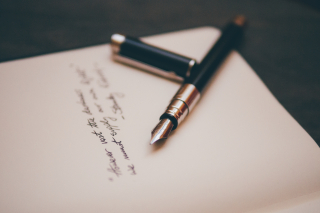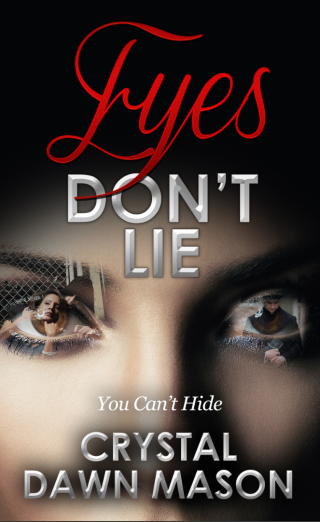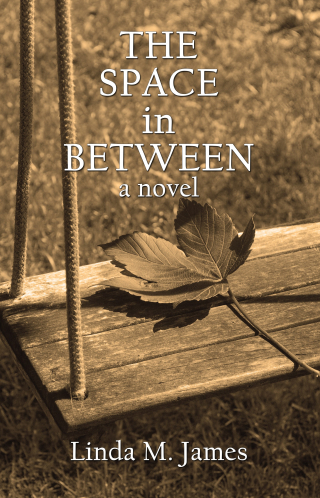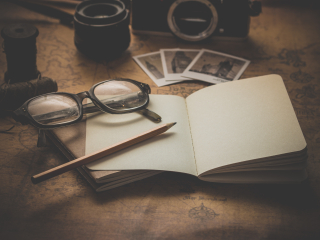Rob Bignell's Blog, page 235
October 18, 2017
Heading for a good answer: Toward vs. towards
Most days  when editing, I���ll see one manuscript with the s-less version of this word and another with the s. Sometimes the manuscripts even come from writers who live in the same city. So which is right?
when editing, I���ll see one manuscript with the s-less version of this word and another with the s. Sometimes the manuscripts even come from writers who live in the same city. So which is right?
Either word is considered grammatically correct, according to the powers that be. Toward is more common in American and Canadian English and towards in British English, however.
Given this, I usually edit towards to read toward among my North American clients.
The exception: When a British character appears in dialogue, he says towards. This is very subtle wording that helps distinguish the character as British (while use of telly and lorry and bloody are less subtle and almost clich��).
Professional Book Editor: Having your novel, short story or nonfiction manuscript proofread or edited before submitting it can prove invaluable. In an economic climate where you face heavy competition, your writing needs a second eye to give you the edge. I can provide that second eye.
<span style="font-family: "trebuchet ms", geneva; font-size: 10pt;" data-mce-style="font-family: 'trebuchet ms', geneva; font-size: 10pt;"><A HREF=���http://ws-na.amazon-adsystem.com/widg... Widgets</A></span>
Related articles
 Five Great Quotations about the Writing Process
Five Great Quotations about the Writing Process Writing Inspiration: Seek another's advice
Writing Inspiration: Seek another's advice Clarity on 11 Commonly Confused Words - Inventing Reality Editing Service
Clarity on 11 Commonly Confused Words - Inventing Reality Editing Service Words of Encouragement for Writers - Inventing Reality Editing Service
Words of Encouragement for Writers - Inventing Reality Editing Service 5 Tips to Encourage and Motivate Writers - Inventing Reality Editing Service
5 Tips to Encourage and Motivate Writers - Inventing Reality Editing Service
October 17, 2017
5 Story Ideas ��� Science Fiction Story Starters
Science fiction  stories typically arise from a novum, a scientifically plausible concept that is a ���reality��� in the tale. The novum might be an mechanical device like robot servants, artificial intelligence, or faster-than-light spacecraft; it also can be a hypothetical idea such as ���The Earth is a scientific experiment run by aliens to determine the meaning of life��� or ���The government outlaws books.��� The author then asks ���What if?��� exploring how the world with this novum is different than ours.
stories typically arise from a novum, a scientifically plausible concept that is a ���reality��� in the tale. The novum might be an mechanical device like robot servants, artificial intelligence, or faster-than-light spacecraft; it also can be a hypothetical idea such as ���The Earth is a scientific experiment run by aliens to determine the meaning of life��� or ���The government outlaws books.��� The author then asks ���What if?��� exploring how the world with this novum is different than ours.
Among the problems of many novice science fiction writers is instead of introducing a new novum they rely on used furniture ��� that is, they borrow novums from popular SF series. After all, how many novels have you read that use starships exploring the galaxy for the Earth-based Federation? Barely changing names to appear as if you are not appropriating ��� a starcraft seeking M-class worlds for the Earth-centered Alliance ��� still doesn���t cut it as original or fully using the potential that science fiction offers to examine our culture or humanity.
To help SF writers, here are some novums of potential near-future inventions from which stories could be built:
Cleaning closets
What if you could simply hang up your dirty clothes in a closet, where they would be scanned then cleaned with waterless molecular technology? How would this change the ways houses are built or remodeled to accommodate it?
Digital ants
What if to protect digital-reliant systems ��� such as the grid or the Internet ��� software programs (an ���ant���) roamed the net searching for problems. When an ant spots a problem, it signals sister programs that swarm to the scene, analyze the issue, and kills the invading bug (think ���virus���).
High-gravity training facilities
What if athletes could train in higher-than-Earth training facilities so that physical movements were easier in normal Earth gravity? What if taking steroids like this was illegal?
Self-healing concrete
What if bridges and other buildings made of a special concrete-like material could fix themselves? When hairline fractures occur, microfibers in the concrete release ions that react with chemicals in the atmosphere to create a calcium carbonate patch.
Smog-fighting buildings
What if a coating on a building, when struck with sunshine, could release free radicals that react with particles in the atmosphere, reducing smog and grime? Would this cause us to dump anti-pollution efforts as a way to boost energy-thirsty economies?
Professional Book Editor: Having your novel, short story or nonfiction manuscript proofread or edited before submitting it can prove invaluable. In an economic climate where you face heavy competition, your writing needs a second eye to give you the edge. I can provide that second eye.
<A HREF=���http://ws-na.amazon-adsystem.com/widg... Widgets</A>
Related articles
 Five Great Quotations about the Writing Process
Five Great Quotations about the Writing Process Writing Inspiration: Seek another's advice
Writing Inspiration: Seek another's advice Make tables readable in your self-published book
Make tables readable in your self-published book 5 Science Fiction Writing Prompts - Inventing Reality Editing Service
5 Science Fiction Writing Prompts - Inventing Reality Editing Service
October 16, 2017
Establish story���s point of view in opening lines
Every story  has an angle or perspective from which it is told. You establish this perspective, called point of view, in a story���s opening lines. Which point of view you select deeply affects the way the story can be told.
has an angle or perspective from which it is told. You establish this perspective, called point of view, in a story���s opening lines. Which point of view you select deeply affects the way the story can be told.
Consider the following scene, told from an outsider's perspective, as if the narrator were looking down upon the action so that he is able to see all:
Even before the sun rose, Evod and Nevar prepared themselves for the race. Silently, they inventoried supplies, examined their craft���s hull, and unpacked Nevar���s ceremonial suit. Evod inspected each items with a drill instructor���s eye, discovering problems that really weren���t.
If the story instead were told from Nevar's perspective ��� so that we "hear" what he is thinking and only through his eyes know what Evod is doing ��� the above scene would have to be written in an entirely different way:
Nevar turned over the food pack in his hands in the pre-dawn light. Silently he examined the craft���s hull and then unpacked his ceremonial suit. Out of the corner of his eye, he caught Evod staring at the control panel, fretting again about a problem that really wasn���t.
Selecting the best point of view is important because it needs to be consistent throughout the story to establish unity of effect. Without a consistent point of view, the reader can lose track of who the story is about, and dramatic tension is weakened. The story thus loses its sense of purpose, which ought to be carried through all its elements.
Editors often advise selecting the viewpoint of the character who has the most at stake, and as a general rule, it is a good guideline to follow. But point of view selection is a more sophisticated process than simply writing the story's perspective from that of the antagonist or main character. Sometimes the main character���s viewpoint is unsuitable for revealing the story���s theme. A goof example is F. Scott Fitzgerald���s ���The Great Gatsby,��� which is told by a friend of the main character, Jay Gatsby, a tragic man who can���t see that his hedonism and inability to move on from a past love is his fall.
Professional Book Editor: Having your novel, short story or nonfiction manuscript proofread or edited before submitting it can prove invaluable. In an economic climate where you face heavy competition, your writing needs a second eye to give you the edge. I can provide that second eye.
<A HREF=���http://ws-na.amazon-adsystem.com/widg... Widgets</A>
Related articles
 Five Great Quotations about the Writing Process
Five Great Quotations about the Writing Process Writing Inspiration: Seek another's advice
Writing Inspiration: Seek another's advice Make tables readable in your self-published book
Make tables readable in your self-published book
October 15, 2017
Five Great Quotations about Stories
���A good  story is always more dazzling than a broken piece of truth.��� - Diane Setterfield
story is always more dazzling than a broken piece of truth.��� - Diane Setterfield
���...great writers are indecent people. They live unfairly, saving the best part for paper.��� - Charles Bukowski
���It���s like Tolstoy said. Happiness is an allegory, unhappiness a story.��� - Haruki Murakami
���The last paragraph in which you tell what the story is about is almost always best left out.��� - Irwin Shaw
���Some stories are true that never happened.��� - Elie Wiesel
Professional Book Editor: Having your novel, short story or nonfiction manuscript proofread or edited before submitting it can prove invaluable. In an economic climate where you face heavy competition, your writing needs a second eye to give you the edge. I can provide that second eye.
<A HREF=���http://ws-na.amazon-adsystem.com/widg... Widgets</A>
Related articles
 Five Great Quotations about the Writing Process
Five Great Quotations about the Writing Process Writing Inspiration: Seek another's advice
Writing Inspiration: Seek another's advice Five Great Quotations about the Craft of Writing - Inventing Reality Editing Service
Five Great Quotations about the Craft of Writing - Inventing Reality Editing Service Five Great Quotations about Publishing - Inventing Reality Editing Service
Five Great Quotations about Publishing - Inventing Reality Editing Service 5 Great Quotations about What is a Writer - Inventing Reality Editing Service
5 Great Quotations about What is a Writer - Inventing Reality Editing Service
October 14, 2017
Editing client publishes her fourth novel
A recent  editing client, Crystal Mason, has published her fourth book, ���Eyes Don't Lie.��� The novel tells the story of Keith, a broken soul who goes about his days trying to fight his evil urges. But because of a demonic stronghold, good usually loses the battle to evil. Affected by the pain and hurt of his childhood, he now seeks out the love he didn���t receive as a child. But when he doesn���t get it, there���s retribution to pay���and what a sad day it is for those curly haired brunettes with blue eyes who fail to make the mark. But events take a turn when he meets a grocery store cashier who has the ability to see evil through his eyes. McKenzie is able to connect dots, interfering with Keith���s destructive path ��� a path that could lead him to the grave. The book is available online.
editing client, Crystal Mason, has published her fourth book, ���Eyes Don't Lie.��� The novel tells the story of Keith, a broken soul who goes about his days trying to fight his evil urges. But because of a demonic stronghold, good usually loses the battle to evil. Affected by the pain and hurt of his childhood, he now seeks out the love he didn���t receive as a child. But when he doesn���t get it, there���s retribution to pay���and what a sad day it is for those curly haired brunettes with blue eyes who fail to make the mark. But events take a turn when he meets a grocery store cashier who has the ability to see evil through his eyes. McKenzie is able to connect dots, interfering with Keith���s destructive path ��� a path that could lead him to the grave. The book is available online.
Professional Book Editor: Having your novel, short story or nonfiction manuscript proofread or edited before submitting it can prove invaluable. In an economic climate where you face heavy competition, your writing needs a second eye to give you the edge. I can provide that second eye.
<A HREF=���http://ws-na.amazon-adsystem.com/widg... Widgets</A>
Related articles
 Five Great Quotations about the Writing Process
Five Great Quotations about the Writing Process Writing Inspiration: Seek another's advice
Writing Inspiration: Seek another's advice Make tables readable in your self-published book
Make tables readable in your self-published book Editing client publishes first coming-of-age novel - Inventing Reality Editing Service
Editing client publishes first coming-of-age novel - Inventing Reality Editing Service
October 13, 2017
Add ���Interview with the Author��� page to website
On your  website promoting your book, including an interview with the author can prove valuable The interview allows readers to learn more about you, and that increased intimacy can lead to book sales.
website promoting your book, including an interview with the author can prove valuable The interview allows readers to learn more about you, and that increased intimacy can lead to book sales.
If an interview has been published of you in a newspaper, magazine or blog, acquire permission to post it and then do so. Should an interview not exist or if you can���t get permission to reprint it, you may have to write one yourself. This can be presented as a FAQ so that you don���t mislead readers into thinking you were interviewed by a reporter.
There are several questions you can answer in the FAQ:
��� Have you always enjoyed writing? When did you know you wanted to be a writer?
��� What do you enjoy most about writing?
��� You probably enjoyed reading as a child. Tell us about that. What were your favorite books growing up? What do you enjoy reading now?
��� How would you describe the writing of (title)? Was it an easy or a difficult book to write? Did you know how the book would end as you were beginning to write it?
��� How did you arrive at the name of (character)?
��� Is a part of your (childhood) reflected in (title)? Can you tell us about that?
��� Who is your favorite character in the (story)?
��� Does (something mysterious) in your story have special meaning for you?
��� What do you like about writing (short fiction/novels)?
��� What have you realized about yourself through writing?
��� What are you working on now?
Generally keep your answers short, about two or three sentences long. Of course, if you have a great anecdote to tell, go longer. You don���t have to answer all of or only those questions; you can pick six or seven of them that you like and add a few of your own too.
Professional Book Editor: Having your novel, short story or nonfiction manuscript proofread or edited before submitting it can prove invaluable. In an economic climate where you face heavy competition, your writing needs a second eye to give you the edge. I can provide that second eye.
<A HREF="http://ws-na.amazon-adsystem.com/widg... Widgets</A>
Related articles
 Five Great Quotations about the Writing Process
Five Great Quotations about the Writing Process Writing Inspiration: Seek another's advice
Writing Inspiration: Seek another's advice Make tables readable in your self-published book
Make tables readable in your self-published book
October 12, 2017
Editing client publishes first coming-of-age novel
A recent  editing client of mine has published her first novel. Linda M. James��� ���THE SPACE in BETWEEN��� is a coming-of-age novel set in 1968 Springville, Minnesota.
editing client of mine has published her first novel. Linda M. James��� ���THE SPACE in BETWEEN��� is a coming-of-age novel set in 1968 Springville, Minnesota.
School has just let out and summer vacation is on the horizon for ten-year-old Anna Hendricks, and her sisters. That summer is historically ingrained in the minds of adults and children alike. Bobby Kennedy had been assassinated only two months after the assassination of Reverend Martin Luther King, Jr. The summer is filled with curiosity, conflict, cause and consequence. Tragedy and death invade the folks of Springville in unexpected ways.
Young Anna is a quiet and sensitive child, concerned about those around her, to the point of anxiously, and secretly, bearing a load of guilt. The Space in Between is told from Anna���s perspective ��� it is heart-warming, touching and gut-wrenching, as well as infused with sweetness and light.
Central to the lives of the Hendricks family is their faith in God, but is it enough to save them all in the end?
The book is available online as a paperback and in ebook (Kindle, iBook, Nook, Kobo, and others).
Professional Book Editor: Having your novel, short story or nonfiction manuscript proofread or edited before submitting it can prove invaluable. In an economic climate where you face heavy competition, your writing needs a second eye to give you the edge. I can provide that second eye.
Amazon.com Widgets
October 11, 2017
Tips on writing winning admission essays
An admission  essay is among the most important few hundred words you���ll write. Get it wrong, and you���ll have to apply at another grad school, perhaps one you���re not very enthusiastic about attending.
essay is among the most important few hundred words you���ll write. Get it wrong, and you���ll have to apply at another grad school, perhaps one you���re not very enthusiastic about attending.
Or worse, you don���t get into any grad school at all, setting you back from achieving your dreams for another year or perhaps even a lifetime once you settle into the routine of career, marriage and family.
The good news is writing a winning admission essay is easier than you think. You just have to know the four key traits of a successful admission essay:
��� Structure is vital - Make an outline with your traditional topic sentence and three supporting points. Those looking over your essay want to see if you possess various traits and qualities, so you must be clear that you have them, not leave everyone guessing if you���re a match. By the way, organization and succinctness are a couple of the secondary traits they want in their students.
��� Incorporate key words - Look over the school���s brochure. If it says ���The University of Florida���s graduate students help reshape our social and economic culture,��� use the key words ���help reshape our social and economic culture��� when describing how you���ve shown leadership. This shows that you���re not just using the shotgun approach in applying for grad school but have researched the university/school and are serious about going there.
��� Be specific - Give very definite examples of your supporting points. On the leadership question, don���t just say you were president of the German Club but also list and explain innovative programs you initiated while president to improve the club for its members and the university.
��� Use active voice verbs - Stay away from passive voice such as is, was, were, had, have, etc. Almost every other applicant will use passive voice verbs, so your energy and enthusiasm when you write in active voice will make you stand out.
If applying to multiple grad schools, you���ll likely notice that many ask very similar questions or have the same key words. While each admission essay should be written specifically for the university in question, you likely can reuse sections of answers for one school when applying to another; if you see the key word ���leadership��� in a lot of university brochures, there���s no need to reinvent the wheel, as the saying goes. This can save you some writing time.
Professional Book Editor: Having your novel, short story or nonfiction manuscript proofread or edited before submitting it can prove invaluable. In an economic climate where you face heavy competition, your writing needs a second eye to give you the edge. I can provide that second eye.
<span style="font-family: "trebuchet ms", geneva; font-size: 10pt;" data-mce-style="font-family: 'trebuchet ms', geneva; font-size: 10pt;"><A HREF=���http://ws-na.amazon-adsystem.com/widg... Widgets</A></span>
Related articles
 Five Great Quotations about the Writing Process
Five Great Quotations about the Writing Process Writing Inspiration: Seek another's advice
Writing Inspiration: Seek another's advice Make tables readable in your self-published book
Make tables readable in your self-published book
October 10, 2017
5 Great Science Fiction Writing Prompts
Science fiction  stories typically arise from a novum, a scientifically plausible concept that is a ���reality��� in the tale. The novum might be an mechanical device like robot servants, artificial intelligence, or faster-than-light spacecraft; it also can be a hypothetical idea such as ���The Earth is a scientific experiment run by aliens to determine the meaning of life��� or ���The government outlaws books.��� The author then asks ���What if?��� exploring how the world with this novum is different than ours.
stories typically arise from a novum, a scientifically plausible concept that is a ���reality��� in the tale. The novum might be an mechanical device like robot servants, artificial intelligence, or faster-than-light spacecraft; it also can be a hypothetical idea such as ���The Earth is a scientific experiment run by aliens to determine the meaning of life��� or ���The government outlaws books.��� The author then asks ���What if?��� exploring how the world with this novum is different than ours.
Among the problems of many novice science fiction writers is instead of introducing a new novum they rely on used furniture ��� that is, they borrow novums from popular SF series. After all, how many novels have you read that use starships exploring the galaxy for the Earth-based Federation? Barely changing names to appear as if you are not appropriating ��� a starcraft seeking M-class worlds for the Earth-centered Alliance ��� still doesn���t cut it as original or fully using the potential that science fiction offers to examine our culture or humanity.
To help SF writers, here are some novums of potential near-future inventions from which stories could be built:
Body part farms
What if your body���s organs could be cloned and grown at a laboratory (known as a ���body parts farm���) for use when you suffer a serious injury or are in old age? How would this change people���s perspective on risk-taking and abusing their bodies through alcohol and drugs?
Habitable West Antarctica
What if thanks to global warming West Antarctica���s climate becomes comparable to that of modern Iceland or Scandinavia? What if it became the world���s fastest growing region?
Mobile phone implants
What if you never had to worry about forgetting or losing your cell phone because it is implanted in your body? Placed in your tooth, the cell phone would use accelerometers containing piezoelectric crystals that send vibrations along your jawbone to your ear drum; you would dial the phone and text on it by moving your mouth in a certain way for each number and letter.
Oceanic thermal converters
What if to generate electricity, use of this technology ��� which uses the temperature difference between the ocean���s warm surface and cooler deep water to run a heat engine ��� becomes commonplace? How would this affect the environment, especially if taken to the extreme?
Ultrasound forcefields
What if vehicle windshields emitted ultrasound waves that kept bugs and rain off them? How could this technology by applied to other aspects of daily living (such as a city sidewalks using the same technology to keep rain, snow and dust off them)?
Professional Book Editor: Having your novel, short story or nonfiction manuscript proofread or edited before submitting it can prove invaluable. In an economic climate where you face heavy competition, your writing needs a second eye to give you the edge. I can provide that second eye.
<span style="font-family: &quot;trebuchet ms&quot;, geneva; font-size: 10pt;" data-mce-style="font-family: 'trebuchet ms', geneva; font-size: 10pt;">&lt;A HREF=���http://ws-na.amazon-adsystem.com/widg... Widgets&lt;/A&gt;</span>
Related articles
 Five Great Quotations about the Writing Process
Five Great Quotations about the Writing Process Writing Inspiration: Seek another's advice
Writing Inspiration: Seek another's advice Make tables readable in your self-published book
Make tables readable in your self-published book 5 Science Fiction Writing Prompts - Inventing Reality Editing Service
5 Science Fiction Writing Prompts - Inventing Reality Editing Service
October 9, 2017
How NOT to create a protagonist
You can  have the greatest plot in the world, discuss a deep, universal theme, and write crisp, taut sentences, but if the reader can���t connect to your protagonist, the story will fall flat. Simply put, you always must create a protagonist the reader will root for.
have the greatest plot in the world, discuss a deep, universal theme, and write crisp, taut sentences, but if the reader can���t connect to your protagonist, the story will fall flat. Simply put, you always must create a protagonist the reader will root for.
Too often aspiring authors trip up on that challenge. Many seem content to simply provide meaningless details ��� like the protagonist���s height, hairstyle, school grades ��� believing that makes the character ���real.��� And real means likable, right? And likeable means a connection, correct?
Not quite.
Uninspiring details aren���t the only way writers can stumble with their protagonist. To avoid creating a poorly written main character ��� that is, one who isn���t real ��� watch for these seven pitfalls...
Never solves a problem
A main character who never attempts to solve the story���s central problem usually comes off as dull. Worse, if the character spends the whole book merely ruminating about how the problem is hopeless, he���ll come off as whiny.
Predictable
A predictable character takes conventional actions that never surprise readers. While that may be true to how most people behave in everyday life, it makes for a dull story. After all, a man forced in a difficult situation often will make unorthodox decisions.
Never conflicted with himself
Protagonists who never struggle over decisions or inner fears generally are two-dimensional, cardboard characters. They also make no personal sacrifice when resolving the central issue, reducing the story���s suspensefulness and tension.
Run-of-the-mill
If there���s nothing particularly unique about the character ��� for example, an taste for exotic fashion, an excessively wry sense of humor, a stop-everything-else interest in some offbeat topic ��� he won���t stand out in the reader���s mind. Characters who dress, talk and act like everyone else are dull.
Conformist
A boring protagonist usually possesses no superior talents and skills, always agrees with and follows the policies, and gets along nicely with everybody. Such a character can���t have any conflicts with anyone.
Passionless
A protagonist who possesses no real passion for a value or a person usually lacks a raison d'��tre to be in a story. A protagonist with no purpose has no motivation to solve the central problem. A related issue is that the protagonist does have passion but for the wrong thing, meaning it can���t drive his decision-making to address the central problem; in such cases, the protagonist is miscast for the part.
Lacks a backstory
A main character who the author knows nothing about and does not have a life that occurred ���before��� the story often will feel fake and even contrived. The reality is that in all of us have lived a life before we enjoyed a moment of success. What happened in the time leading up to that moment helped create the person who could succeed. So it is with your protagonist as well. Remember, you never have to tell the backstory (In fact, you shouldn���t.), but you likely will hint at it.
If any of the above seven qualities describe your protagonist, you���ll want to do some revising. Creating a main character can take some time, but it���s well worth the effort; in fact, it may be the most productive thinking you do about your story.
Professional Book Editor: Having your novel, short story or nonfiction manuscript proofread or edited before submitting it can prove invaluable. In an economic climate where you face heavy competition, your writing needs a second eye to give you the edge. I can provide that second eye.
<span style="font-family: "trebuchet ms", geneva; font-size: 10pt;" data-mce-style="font-family: 'trebuchet ms', geneva; font-size: 10pt;"><A HREF=���http://ws-na.amazon-adsystem.com/widg... Widgets</A></span>
Related articles
 Five Great Quotations about the Writing Process
Five Great Quotations about the Writing Process Writing Inspiration: Seek another's advice
Writing Inspiration: Seek another's advice Make tables readable in your self-published book
Make tables readable in your self-published book



